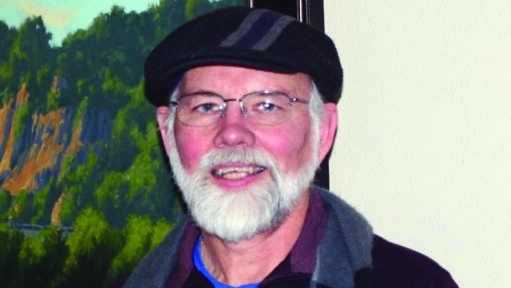Building Community: Tell Me More
“Tell me more.” Just three words. How hard can they be to say? “Tell me more.” It seems like they should slip off one’s tongue with ease. I have a close friend who often makes it look easy. A person is sharing a thought or an opinion and while I might be inclined to identify some flaw in the speaker’s thoughts, my friend unhesitantly extends the invitation to say more.
I first encountered the “tell me more” approach in conversation a number of years ago at an Overcoming Racism Conference. The speaker, who is white, was telling the participants in her workshop that she has made it a practice to engage disagreement with these three simple words. The speaker indicated that she was particularly resolute in the practice if disagreeing with someone who is Black, Indigenous or a Person of Color. She further strengthened her resolve if the speaker was challenging her personally.
The speaker acknowledged that her natural instinct, but truthfully the natural instinct for all of us, is to grow defensive when we hear something with which we disagree. If the challenge is one that affects us personally then the defensiveness grows in intensity. This is what makes conversations about race, racism and white supremacy so difficult. Our defenses go up, like the great wall of China, or virtually any wall intended to keep out the unwanted or perceived threat.
This defensive response, of course, is not limited to issues of race. It manifests in the most personal of relationships, in community life, congregations, virtually any context where people gather and there is potential for disagreement.
It does help if we recognize our defensiveness when it occurs. A good clue is our bodies. There is always somewhere in our bodies that lets us know we are experiencing a measure of threat. It may be our stomach tightening, our neck or shoulders, but invariably emotional defensiveness has a physical presence. There is, in fact, an entire field of study on this very thing called Somatics.
“Tell me more” is no panacea for some of the fundamental disagreements that we face today, but if we are to find common ground, building communities that make room for all, then “Tell me more”, will be an essential component.
I have done my best to take those three simple words to heart, but, I must confess there are times when I fail miserably. It may be because I am caught at a bad time with other concerns on my mind, I am physically tired or simply feeling extra defensive, but there have been times, more than I would care to admit, when “tell me more,” refuses to dislodge from the roof of my mouth. Instead, I offer a full throated explanation of why the speaker is wrong, somehow expecting that my sharp reasoning will win the day. Even my good friend, who I often look to as a model for this approach, found himself coming up short when confronted with an opinion that perhaps got too close to home. Virtually the first words he spoke were, “I disagree.” In my mind, I was wondering, what happened to “Tell me more”.
I may and likely will miss the mark again, but remain convinced that a response of “tell me more” is advice worth heading.
Tim Johnson is a retired pastor for United Church of Christ.



